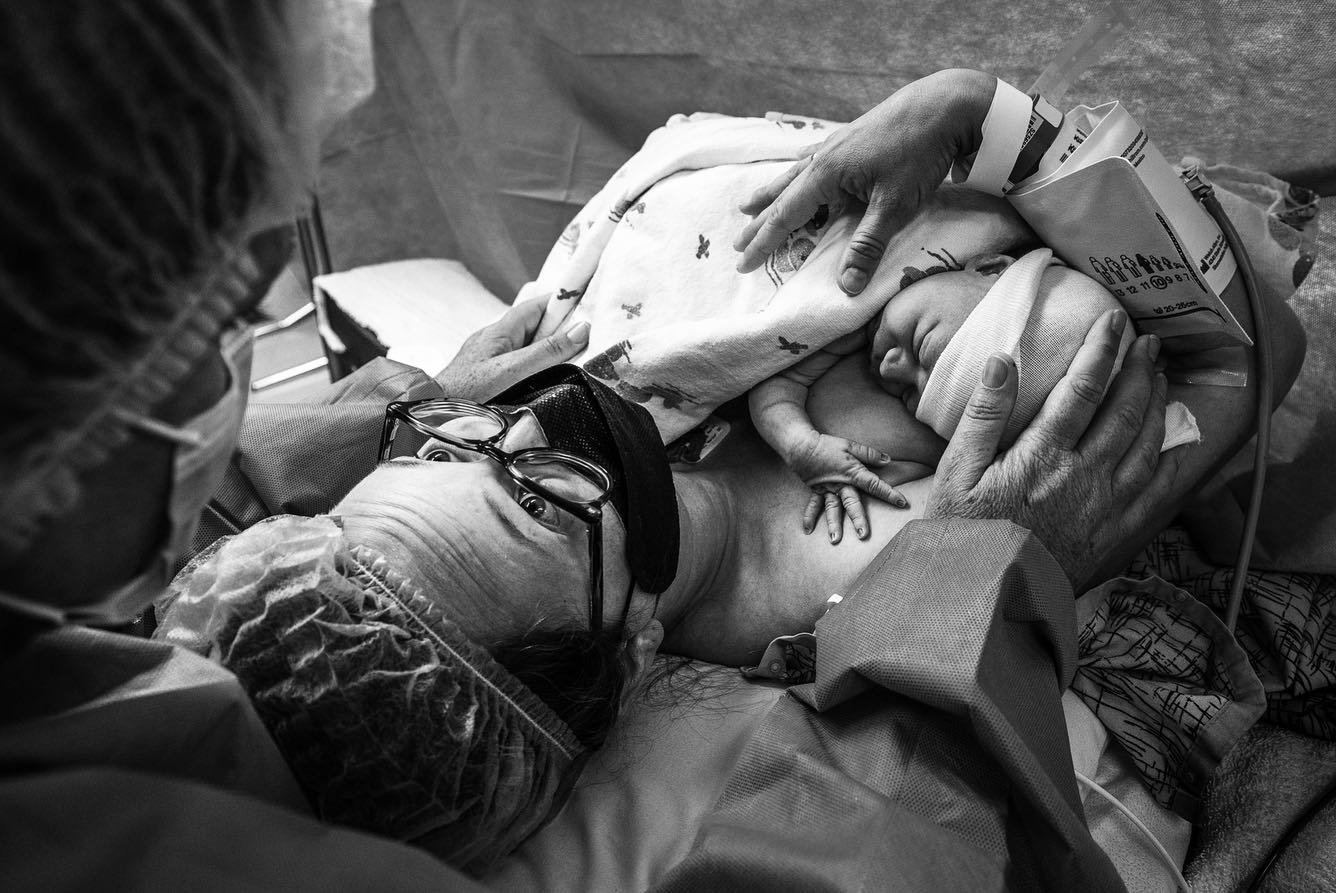What to do if you’re not feeling like yourself during pregnancy or postpartum
A year ago this month, I was lying in a hospital bed awaiting my scheduled C-section.
Photo by Matt Hawley
Nurses and doctors bustled around me in their sanitary scrubs, taking vitals, going over consent forms, prepping me for each stage of delivery.
The head anesthesiologist walked me through the surgery and asked me what questions I had. He asked me if I was feeling anxious and what playlist he could pull up on his personal cell phone to keep me grounded. My husband and I went over the mantras I had written with my therapist, whom I had been working with for over six months leading up to delivery. I walked into the surgery room, arm in arm with my doula, who was allowed to come in early while they placed my epidural.
The surgery team was incredible: they talked me through each part of the surgery, they held my hand, they reassured me, and they spoke to me like a human being who was going through a major surgery—because I was. My doula sat at my head, my husband at my side, while we waited for each person to do their job. And then I heard it, the most beautiful noise: My son cried with all of his little might, and my world turned right side up. I took in every moment and cradled him on my chest while my OB finished sewing me up, not a care in the world. I breathed in that little soul and sighed a sigh of relief, as happy tears filled my eyes and pooled into my ears. This was what birth could be.
This is not what birth had been like for me five years ago.
That experience was what can only be described as traumatic. I pushed for four hours after more than 30 hours of labor, only to be whisked away to an emergency C-section that was going to be, as the on-call OB described, “pretty rough.” It was almost more than I could bear. At the end of it all, I heard my son’s cries, but I didn’t want to hold him—not because he wasn’t beautiful and perfect and everything I wanted, but because I didn’t want him to see me. I had been broken.
After an extended stay at the hospital thanks to postpartum preeclampsia, my OB checked in with me. “How are you doing?” I answered through my tears: “I think I’m okay physically, but I’m not okay mentally.” She prescribed me Lexapro and sent me home.
My experience is not unique. Parents are often sent home after birth without adequate support—either because their providers haven’t given referrals (often due to the busy nature of the hospital or birthing center), because they do not have much of a support system, or because these resources simply don’t exist in their area.
But there are resources out there for parents—resources I didn’t know about five years ago—and people who care about their well-being.
Here are some places to start:
Talk with your doctor about how you’re feeling.
There might be some things that are going on physically that have contributed to your mental health.
Reach out to your local Postpartum Support International (PSI) coordinator.
You can either fill out this quick online form or call/text the PSI HelpLine at 1-800-944-4773 (text 971-203-7773 for Español). Coordinators can help you find a therapist, psychiatrist and support groups based on your needs and preferences. You can also find specialized support for dads, partners and families, queer and trans parents, military families and more at www.postpartum.net.
Contact a perinatal therapist.
Reconnect with a therapist who you have a relationship with or research therapists in your area who have experience with pregnancy and postpartum mental health. They often offer flexible timing and virtual support.
Join a support group.
Check with the hospital where you delivered to see if they have support groups. Ask your therapist if they are running one or know of an in-person option. There are online groups through PSI for postpartum depression/anxiety, pregnancy and infant loss, fertility challenges, post-abortion support, parents of children with complex medical needs and more. Groups are offered in English and Spanish.
Follow informed, thoughtful social media accounts.
Check out The Motherhood Center of New York (@themotherhoodcenter), Seleni Institute (@selenidotorg), TheBlueDotProject (@thebluedotprj), PSI (@postpartumsupportinterntational), and any local therapists you trust.
Connect with other families.
Participate in local, free, family-friendly events that raise awareness for pregnancy and postpartum mental health, like the Kansas City Conference Climb Out of the Darkness on Saturday, July 1.
Know who to call in an emergency.
Call 988 for emergency situations, such as thoughts of harming yourself or others.
Kim Hawley is the founder of Whole Parent Foundation, a KC nonprofit dedicated to the mental health and well-being of all parents, and founder and facilitator of Strength Through Story, a free online support group that focuses on healing through writing and storytelling. She is the Missouri State Lead Coordinator for Postpartum Support International (PSI) and is vice-chair of the PSI-MO board. She is currently attending the University of Michigan, School of Social Work, pursuing a degree in Social Work.



